Can Unbalanced Tires Cause Vibration? Here’s What You Need to Know

Do you feel like you’re driving on a bumpy road even on a smooth highway? If so, it could be a sign that your tires are unbalanced. While unbalanced tires may seem like a minor inconvenience, they can have serious consequences for your vehicle’s performance and safety.
In this article, we’ll take a closer look at what tire balancing is, the symptoms and causes of unbalanced tires, and the associated problems and risks. So, fasten your seatbelt and join us on this bumpy ride.
Key Takeaways
Understanding Tire Balance
Tire balancing is a process that involves adding small weights to the rims of the wheels in order to distribute weight evenly across all four tires.
When a tire and wheel assembly is properly balanced, it spins evenly without any wobbling or hopping.
Symptoms Of Unbalanced Tires
One of the most common symptoms of unbalanced tires is vibrations felt through the steering wheel or vehicle floor. This can range from a slightly shaking steering wheel to a violent shaking sensation.
The vibration tends to increase with speed, and it may be more noticeable on certain types of road surfaces.
Causes Of Unbalanced Tires
Unbalanced tires can be caused by normal wear and tear, damaged tires or rims, and improper mounting of the tires. But that’s not all – keep reading to learn more about how unbalanced tires can affect your vehicle’s performance and safety.
Normal Wear And Tear

Normal wear and tear is one of the most common causes of unbalanced tires. Over time, as you rack up miles on your vehicle, the tires naturally begin to wear down. As treads wear unevenly across the circumference of each tire, they become heavier in certain areas, causing a shift in balance.
Even if you maintain your tires regularly, normal wear and tear will still occur. This means that it's important to have your tires balanced every few months or when you notice excess noise or vibration while driving on different roads.
Damaged Tire Or Rim
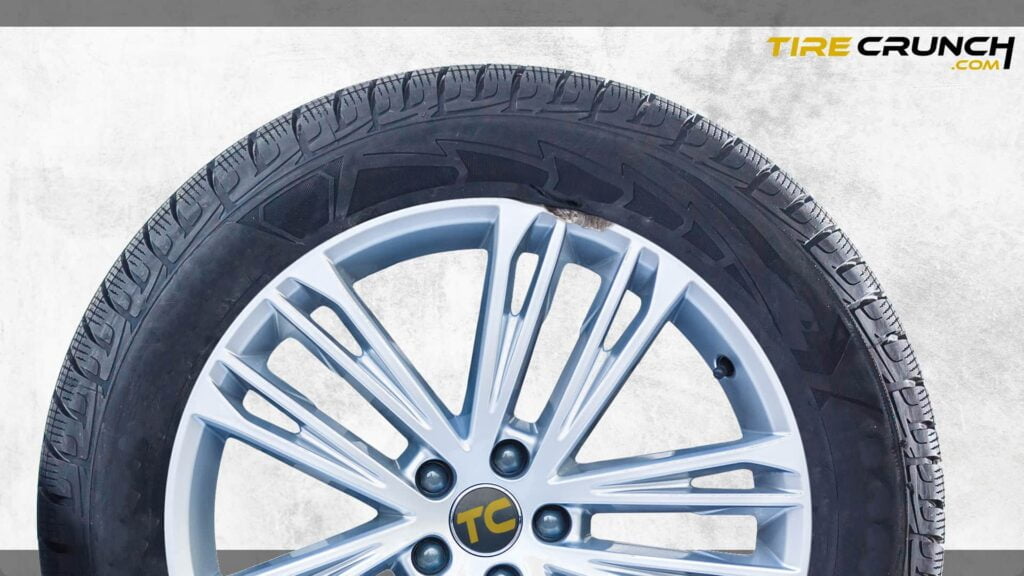
Damaged tires are also a common source of vehicle vibration. Road hazards like potholes and bumps can lead to damage that isn’t always immediately apparent, resulting in a vibrating car down the line.
Incorrect Mounting Of Tires
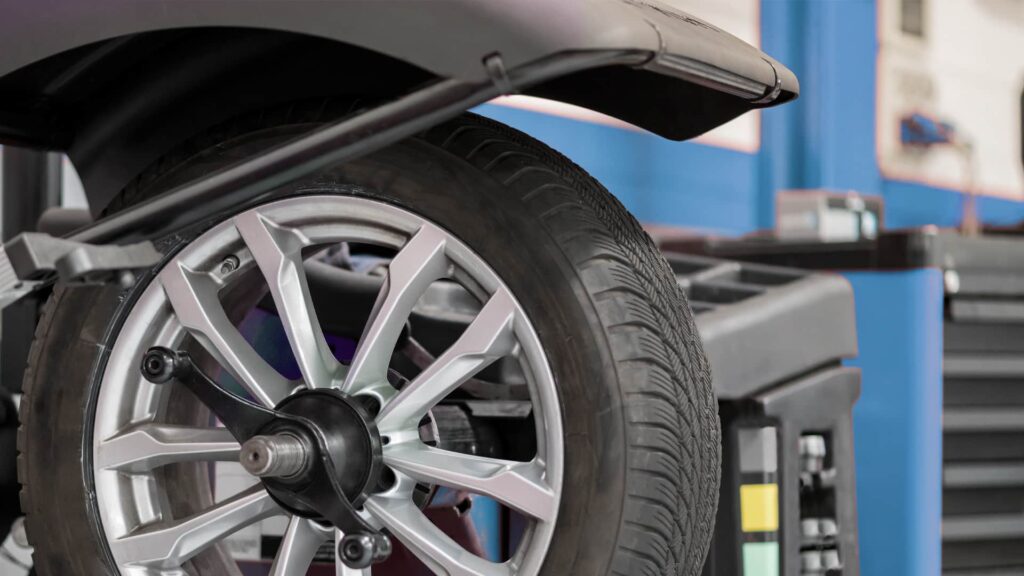
Incorrect mounting of tires is a common cause of unbalanced tires. It refers to the improper installation or fitting of the wheels on the car.
Associated Problems With Unbalanced Tires
Unbalanced tires can cause a variety of problems, including increased wear on your tires, poor handling and performance, reduced fuel efficiency, and even safety concerns.
1. Increased Wear And Tear On Tires
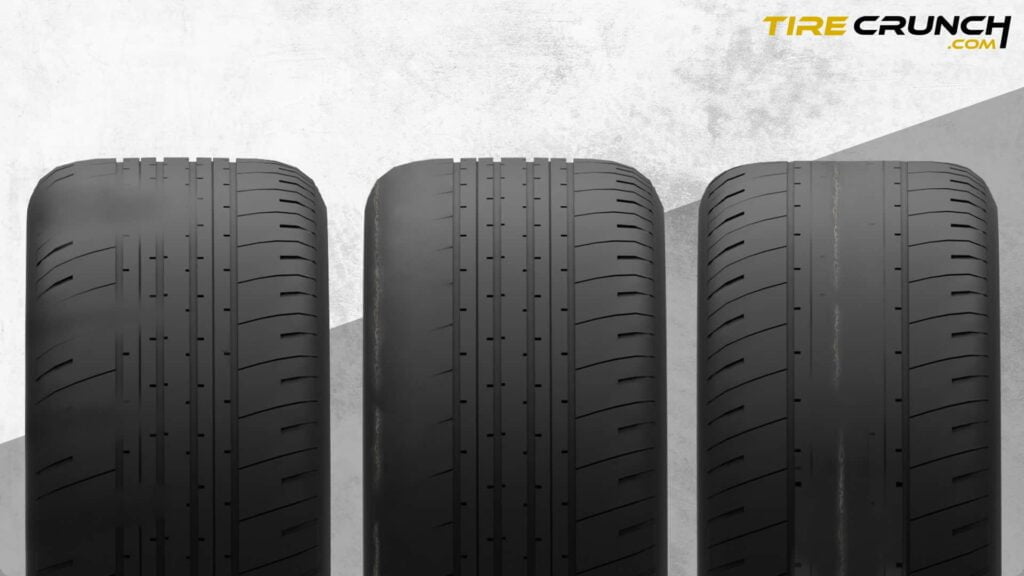
When your tires are unbalanced, it can lead to excessive wear and tear. This is because the vibrations caused by unbalanced tires can affect certain areas of the tire more than others. Over time, this uneven pressure on the tire can cause it to wear down quicker than if it was properly balanced.
2. Increased Wear And Tear On Suspension Components
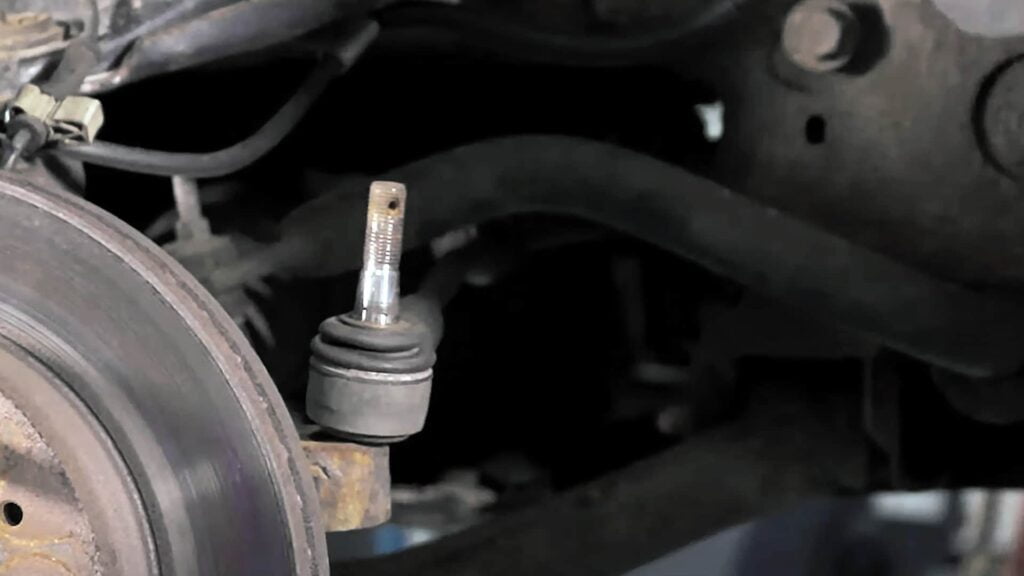
Driving with unbalanced tires also puts extra stress on other components of your vehicle such as shocks, brakes, and wheel bearings. These parts have to work harder to compensate for the vibration created by unbalanced tires which could potentially shorten their lifespan.
3. Poor Handling And Performance

Unbalanced tires can pose a serious safety risk to drivers and passengers alike. When a tire is not properly balanced, it can cause significant vibrations that may make it difficult to maintain control of the vehicle. This can be especially dangerous at higher speeds or during inclement weather conditions.
4. Reduced Fuel Efficiency
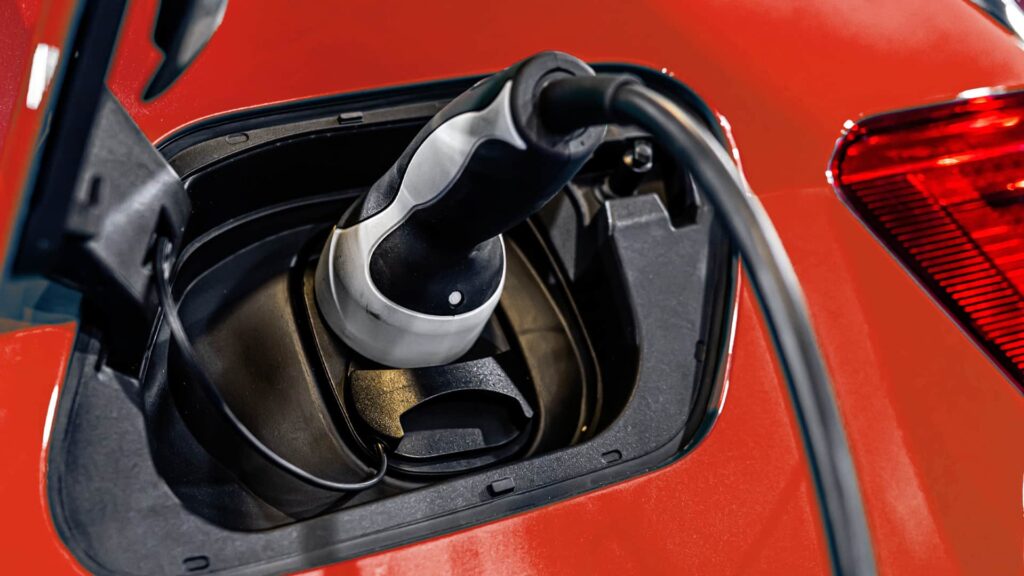
One of the most common symptoms of unbalanced tires is reduced fuel efficiency. When tires are unbalanced, they don’t rotate evenly or smoothly. This can cause more friction and resistance as you drive, which in turn requires your engine to work harder and use more fuel.
Fixing Unbalanced Tires
To fix unbalanced tires, take your vehicle to a professional tire shop for balancing or regular maintenance.
If tire balancing does not solve the issue of vibrations in a vehicle, it may be necessary to check the alignment and the suspension components.
Related Reading: Tire Balance vs Alignment. Which one do you need? | Firestone
Preventive Measures To Keep Tires Balanced
By following the preventive measures below, you’ll ensure your car tires remain in good shape and save money in the long run.
1. Regularly Scheduled Tire Maintenance
Regularly scheduled tire maintenance involves checking the tire tread wear, tire pressure, and taking corrective measures if necessary.
Simple tasks such as rotating the tires or checking for uneven wear can help prolong their lifespan and prevent other car problems.
2. Proper Tire Inflation
Low tire pressures can affect braking distances, steering and handling, which can be extremely dangerous in emergency situations. It’s crucial to ensure that your tires are always inflated to the manufacturer’s recommended pressure levels.
3. Avoiding Road Hazards And Potholes
Driving over potholes and uneven pavement can cause significant damage to your car, including tire imbalances that can lead to excessive vibration.
Common Myths About Unbalanced Tires
Myth 1: You Can Drive On Unbalanced Tires Indefinitely
One of the most common misconceptions about unbalanced tires is that they can be driven on indefinitely.
The truth is, ignoring tire balance issues can lead to more serious problems down the road such as uneven tread wear, potentially causing loss of control while driving.
Additionally, unbalanced tires contribute to reduced fuel efficiency and are often much noisier than properly balanced ones.
Many tire shops insist on proper tire balancing as part of regular maintenance because it not only improves vehicle performance but also promotes safety by preventing potential issues from occurring.
Myth 2: Only Older Or Used Tires Can Become Unbalanced
Regardless of age, mileage, or usage, all tires are susceptible to becoming unbalanced over time as normal wear and tear takes its toll.
Neglecting proper tire maintenance such as rotation and alignment can also contribute to an imbalance in a vehicle’s wheels, leading to problems with vibration and handling.
Conclusion
In conclusion, unbalanced tires can cause a range of problems that affect the performance and safety of your vehicle. From vibrations felt in the steering wheel to uneven tire wear and reduced fuel efficiency, it’s important to address this issue promptly.
By understanding the causes and symptoms of unbalanced tires, you can take proactive steps like regular maintenance and proper inflation to keep your tires balanced. Don’t waste money or put yourself at risk by neglecting these critical components of your car – visit a professional tire shop for balancing services today!
FAQs:
How Do Unbalanced Tires Cause Vibration?
Unbalanced tires can cause vibrations in your vehicle due to uneven distribution of weight around the wheel assembly. This creates a wobbling effect, as the tire tries to rotate while still being off-balance.
Can Unbalanced Wheels Lead To Other Problems With My Car’s Suspension System?
Yes, unbalanced wheels can place additional strain and stress on various parts of your car’s suspension system including shocks, struts, and ball joints leading them to wear out earlier than anticipated which could result in costly repairs.
How Often Should I Have My Vehicle’s Wheels And Tires Checked For Balance Issues?
It is recommended that you have your wheels balanced every 5-7k miles, or at least once per year as part of regular maintenance.
